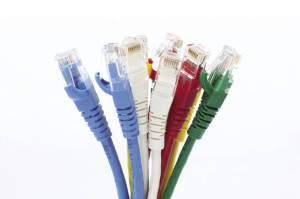Late last month, Comcast Corp., the nation”™s largest Internet service provider, announced that Netflix Inc. would begin to pay for faster and more reliable Internet access for Comcast users accessing Netflix”™s video streaming content.
Content from Netflix accounts for nearly 30 percent of all Internet traffic during peak hours, which slows overall content delivery for everyone. Now, however, Comcast will give preferential treatment to Netflix traffic by allowing it a more direct, faster connection.
The deal is the first in which a content provider has agreed to pay for Internet access since a federal appeals court struck down the Federal Communications Commission”™s net neutrality rules in January, said Joel Felber, an attorney at Leason Ellis based in White Plains.
Under previous net neutrality rules, the FCC had prohibited Internet service providers from charging “discriminatory” rates by the type of user, website or content. However, the U.S. Court of Appeals for the D.C. Circuit ruled on Jan. 14 that the FCC had overstepped its authority to enforce the rules in a case between the agency and Comcast.
On Feb. 19, the FCC announced plans to create a new set of net neutrality rules to comply with the court”™s ruling. But for now, the speed of certain websites can be determined by a content provider”™s willingness to pay, Felber said.
“What Comcast is saying is ”˜You pay us money and we”™ll open the pipe for you,”™” Felber said. “Comcast hasn”™t said if they”™ll slow down the speed for anyone else, but the expectation is that Netflix will enjoy uninterrupted and good Internet access.”
Before joining Leason Ellis, Felber was a computer programmer for 10 years, leading up to his specialization in computer technology and intellectual property law. Currently Leason Ellis is a primary source for high-tech startups in Westchester County.
“We haven”™t yet seen the inability for a consumer to access content because the broadband provider has shut down the pipe, but that isn”™t to say it couldn”™t happen,” Felber said. “It would be naive to think the provider has unlimited access to resources and will make money hand over fist by controlling (content speeds) and that it”™s purely out of greed.”
Felber said the way the public consumes content is changing, as evidenced by the growing number of online viewers for the Olympics and Super Bowl. There”™s a larger emphasis on video streaming, which puts a tremendous demand on the infrastructure and requires maintenance, he said.
In an ideal world, Comcast would use the additional revenue from the Netflix deal to invest in the infrastructure or find innovative solutions to increase Internet speeds, Felber said. Then everyone would win. But there”™s no guarantee that will happen.
“The question is, what does this mean for startups, you, me and the world,” Felber said.
In the most basic sense, companies and startups that are unable to pay for quality access could see the speed of their websites slowed, he said. Investors may be more hesitant to lend to startups that require a higher price tag and it could be harder for startups to get off the ground.
“Then startups will have to wait and sit tight until the laws change,” Felber said.
If the public disagrees with the way providers are regulated, the FCC or legislators will likely respond, Felber said. Government officials might even find they need to classify the Internet as a public utility like electricity and regulate it from there, he said.
“The thing I really love about the Internet: it has been and continues to be the great Wild West,” Felber said. “It”™s the 21st century”™s Wild West. The environment is untamed and Congress is struggling to keep up.”



















